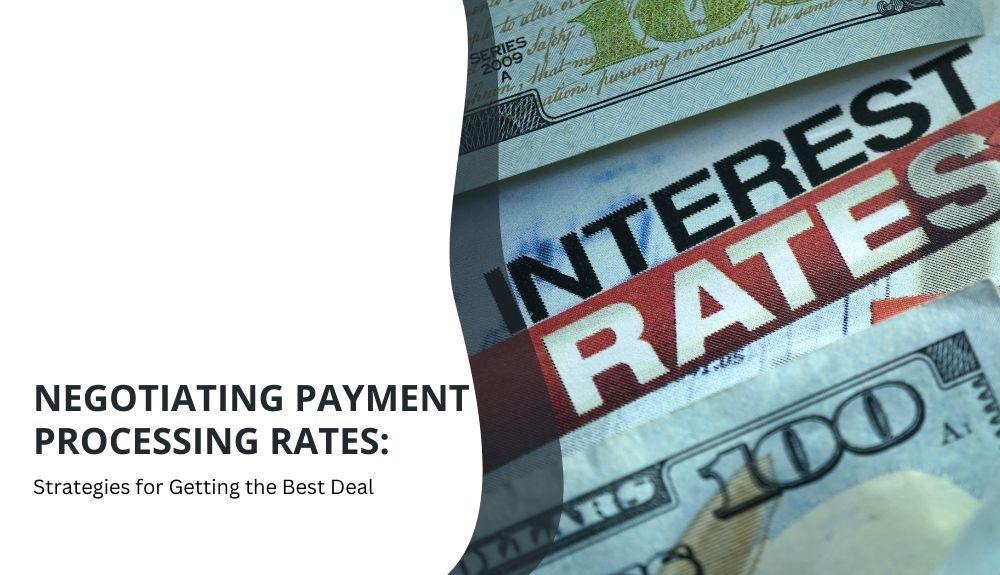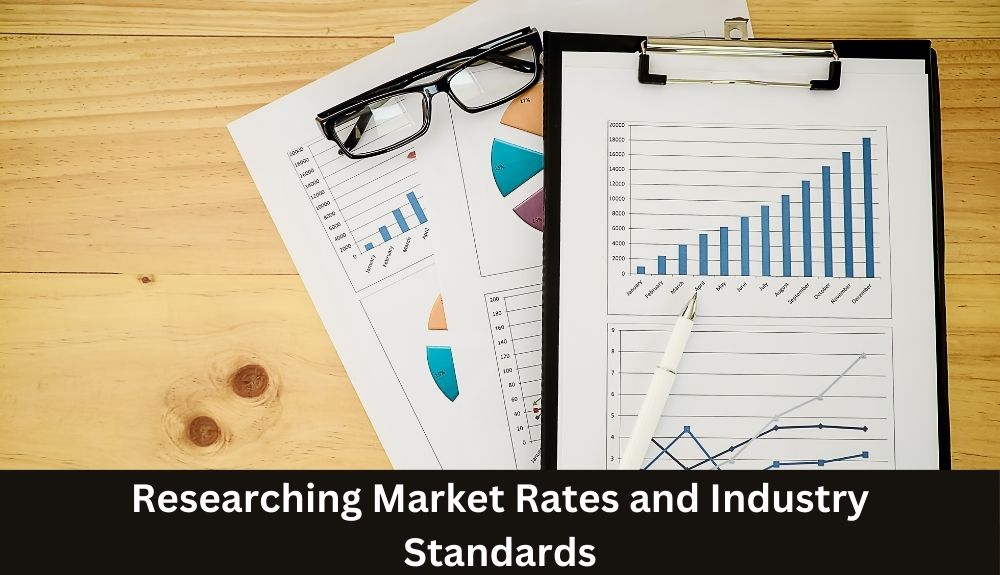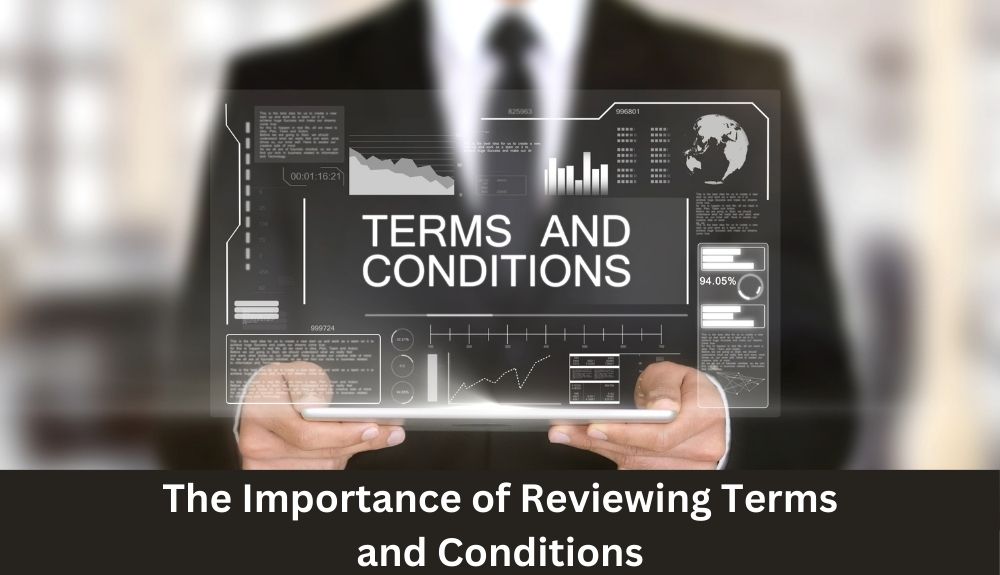
By max February 13, 2024
Are you tired of paying excessive fees for your business’s payment processing? It’s time to take matters into your own hands and start negotiating for the best rates possible! Negotiating payment processing rates is an essential skill that can save you a significant amount of money in the long run. Whether you’re a small business owner or part of a large corporation, understanding how to navigate these negotiations is crucial. In this blog post, we’ll explore effective strategies and tips to help you get the best deal when it comes to payment processing rates. So let’s dive in and uncover the secrets to successful negotiations!
Why Negotiating Payment Processing Rates is Important
When it comes to running a business, every penny counts. That’s why negotiating payment processing rates is of utmost importance. By securing favorable rates, you can significantly impact your bottom line and increase profitability.
Negotiating payment processing rates allows you to have more control over your expenses. Payment processors often offer different pricing models and fees that can quickly add up if not negotiated properly. Taking the time to negotiate ensures that you’re paying fair and competitive rates based on the specific needs of your business.
By negotiating payment processing rates, you are actively managing your costs and optimizing your cash flow. Lowering transaction fees means keeping more money in your pocket rather than giving it away unnecessarily.
Moreover, negotiating gives you an opportunity to build a relationship with the payment processor. Establishing rapport can lead to additional benefits such as personalized customer support or access to new products and features.
Negotiating payment processing rates sets a precedent for future negotiations with other service providers. It shows that you value cost efficiency and are willing to advocate for yourself when it comes to financial matters.
Taking the time to negotiate payment processing rates is vital for any business owner looking to maximize profits and optimize their financial operations. Don’t overlook this crucial aspect of managing your expenses – start exploring negotiation strategies today!
Understanding the Different Types of Fees
When it comes to payment processing, it’s important to have a clear understanding of the various types of fees involved. This knowledge will empower you during negotiations and help you get the best deal for your business.
One common fee is the interchange fee, which is charged by card networks like Visa or Mastercard. This fee is a percentage of each transaction and varies based on factors such as card type and transaction volume. It’s crucial to research current market rates for these fees so that you can negotiate from an informed standpoint.
Another fee to consider is the assessment fee, which is charged by the card networks themselves. This fee also varies but tends to be lower than interchange fees. It’s important to understand how this assessment fee may impact your overall payment processing costs.
In addition to these network-related fees, there are also processor-specific fees to consider. These can include monthly statement fees, batch fees, and gateway access fees. It’s essential not only to understand what these fees are but also how they compare with industry standards.
By familiarizing yourself with all these different types of fees, you’ll be better equipped to negotiate favorable rates with payment processors that align with your business needs. Remember that every negotiation should be approached strategically based on thorough research and market knowledge!
Researching Market Rates and Industry Standards

When negotiating payment processing rates, it’s crucial to have a solid understanding of market rates and industry standards. This knowledge empowers you to make informed decisions and ensures that you’re getting the best possible deal for your business.
To begin researching market rates, start by gathering information from various sources. Look into industry publications, online forums, and even reach out to other businesses in your sector. It’s important to compare apples with apples – so consider factors such as transaction volume, average ticket size, and any specific needs unique to your business.
Industry standards can vary depending on the nature of your business and the type of transactions being processed. For example, retail businesses may have different fee structures compared to e-commerce merchants. Take the time to understand these nuances so that you can negotiate from an educated standpoint.
In addition to gathering information on current rates, it’s also essential to stay updated on any changes or trends within the payment processing industry. Payment technology is constantly evolving, which means fees and pricing models may change over time. By staying informed about these developments, you’ll be better equipped during negotiations.
Remember that negotiation is a two-way street. While it’s important for you as a merchant to get competitive rates, payment processors also need reasonable margins for their services. Strive for a win-win situation where both parties feel satisfied with the agreement reached.
By thoroughly researching market rates and industry standards before entering into negotiations with payment processors, you position yourself as an informed negotiator who understands their worth in the marketplace. This knowledge will give you confidence when discussing terms and ensure that you secure a fair deal that benefits both your bottom line and long-term success.
Tips for Negotiating with Payment Processors
When it comes to negotiating with payment processors, there are a few tips that can help you get the best deal. First and foremost, do your research. Understand what the current market rates and industry standards are for payment processing fees. This will give you an idea of what is reasonable to expect during negotiations.
Next, come prepared with data and information about your business. Payment processors want to see that you are a reliable customer who will bring them repeat business. Highlight any positive metrics or growth projections that demonstrate your potential value as a client.
It’s also important to be confident in your negotiation skills. Don’t be afraid to ask for better rates or additional perks like waived setup fees or reduced transaction costs. Remember, the worst they can say is no!
Another tip is to consider bundling services together when negotiating with payment processors. If you require multiple services such as online payments, mobile payments, and point-of-sale systems, inquire about package deals that could potentially save you money in the long run.
Don’t forget about contract terms and conditions. Carefully review all agreements before signing on the dotted line. Look out for hidden fees or penalties that may not have been discussed during negotiations.
By following these tips and utilizing effective negotiation strategies tailored to your specific business needs, you’ll be well-equipped to secure the best possible payment processing rates for your company!
Negotiation Strategies for Small Businesses vs Large Corporations
When it comes to negotiating payment processing rates, small businesses and large corporations may face different challenges. However, both can benefit from implementing effective negotiation strategies.
For small businesses, it’s important to emphasize their unique needs and limitations during negotiations. Highlighting the potential for future growth and long-term partnerships can help strengthen their bargaining position. Additionally, exploring alternative payment processors or bundling services can provide leverage when negotiating rates.
On the other hand, large corporations have more negotiating power due to their volume of transactions. They should focus on leveraging this advantage by conducting thorough market research and benchmarking industry standards. By demonstrating knowledge of competitive rates and exploring multiple options, they are more likely to secure favorable terms.
Regardless of business size, establishing a strong relationship with the payment processor is crucial. Building rapport through open communication and clear expectations sets the foundation for successful negotiations.
While small businesses may need to highlight their potential for growth in negotiations, large corporations should leverage their transaction volume as an advantage. Both parties should conduct thorough research and build relationships with payment processors to achieve the best possible outcomes in rate negotiations.
Common Mistakes to Avoid During Negotiations
Negotiating payment processing rates can be a challenging task, but avoiding common mistakes can make the process smoother and more successful. Here are some mistakes to steer clear of when negotiating:
1. Lack of research: One of the biggest mistakes is going into negotiations without doing proper research. It’s essential to understand market rates and industry standards, as well as what your competitors are paying for similar services.
2. Focusing solely on rates: While getting the best rate is important, it shouldn’t be your only focus during negotiations. Consider other factors like customer support, security measures, and additional fees that may apply.
3. Failure to compare offers: Don’t settle for the first offer you receive; take the time to compare different processors’ terms and conditions before making a decision. This will help you identify any hidden costs or unfavorable clauses.
4. Overlooking contract details: Carefully review all terms and conditions before signing any agreements. Pay attention to cancellation policies, termination fees, and any potential rate increases down the line.
5. Not leveraging competition: Use competitive bidding to your advantage by obtaining multiple quotes from different payment processors. This not only gives you leverage in negotiations but also allows you to choose the best option for your business.
6. Neglecting long-term relationships: Building a good relationship with your payment processor can lead to better deals in the future. Don’t overlook this aspect during negotiations – consider factors like reputation, reliability, and willingness to work with you on future pricing adjustments.
By avoiding these common negotiation pitfalls, you’ll be better equipped to secure favorable payment processing rates that align with your business needs and goals.
The Importance of Reviewing Terms and Conditions

When negotiating payment processing rates, it is crucial to thoroughly review the terms and conditions offered by potential processors. This step may seem tedious or time-consuming, but it can save your business from unexpected fees or unfavorable contract terms.
First and foremost, carefully reading through the terms and conditions allows you to understand exactly what you are agreeing to. It provides clarity on important aspects such as pricing structure, cancellation policies, and any additional fees that may be charged. By being aware of these details upfront, you can avoid unpleasant surprises down the line.
Additionally, reviewing the terms and conditions enables you to compare different processors more effectively. Each provider may have its own unique set of conditions that could impact your decision-making process. By examining these details side by side, you can make an informed choice about which processor best meets your needs.
Furthermore, taking the time to review the terms and conditions demonstrates a level of due diligence on your part as a business owner or representative. It shows that you are proactive in understanding contractual agreements before entering into them. This not only protects your interests but also establishes a foundation for open communication with payment processors.
Don’t hesitate to seek clarification if there is anything in the terms and conditions that is unclear or confusing. Reach out to representatives from prospective payment processors for further explanation or negotiation if needed. Remember that this process is about finding a mutually beneficial arrangement for both parties involved.
Reviewing the terms and conditions should not be overlooked when negotiating payment processing rates. It is an essential step in securing fair pricing structures while safeguarding your business’s financial well-being in the long run.
Conclusion
In today’s fast-paced business world, negotiating payment processing rates is crucial for both small businesses and large corporations alike. By taking the time to understand the different types of fees, researching market rates, and employing effective negotiation strategies, businesses can secure better deals that align with their financial goals.
When it comes to negotiating payment processing rates, knowledge is power. Small businesses should leverage their size and flexibility to negotiate lower rates based on their transaction volume and industry standards. On the other hand, larger corporations can use their market influence and bargaining power to seek more competitive pricing structures.
However, regardless of the size of your business, it’s important not to fall into common negotiation pitfalls. Avoid rushing through negotiations or being overly aggressive; instead, approach discussions with a collaborative mindset focused on finding mutually beneficial solutions.
One critical aspect often overlooked during negotiations is reviewing the terms and conditions outlined in contracts thoroughly. Be sure to understand all aspects such as cancellation fees, contract length requirements, hidden charges or penalties that may impact your long-term business operations.
In conclusion, by implementing these strategies for negotiating payment processing rates effectively while keeping an eye out for potential pitfalls or hidden clauses within contracts will go a long way towards securing favorable terms tailored specifically for your business needs.
Remember that every successful negotiation requires preparation, research-driven decision-making processes coupled with effective communication skills – so be proactive in seeking out opportunities to optimize your payment processing rates!
